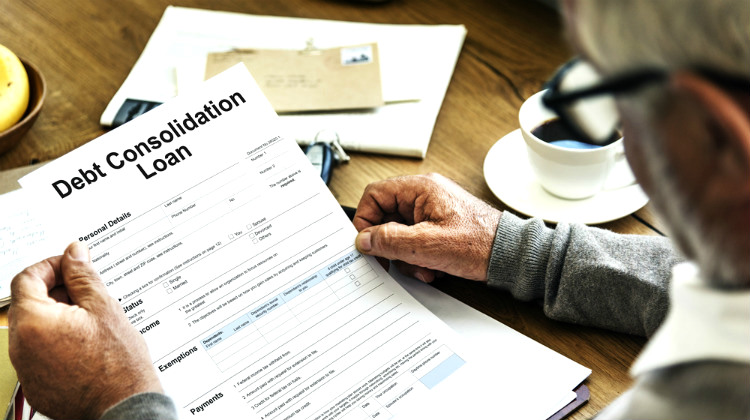Government Debt Consolidation Loan Programs

• • • • Credit Counseling Services Credit counseling services provide various resources to help solve your money problems. From starting a budget to educational programs on money management, counselors discuss your entire financial situation and help you develop a personalized plan. Credit Counseling Service Locations You can find free or low-cost credit counseling options at: • Credit unions • Extension offices • Religious organizations • Nonprofit agencies Make sure the credit counseling service you're using is accredited with either of these organizations: • • Military Servicemembers Under the provisions of the Servicemembers Civil Relief Act (SCRA), you may qualify for a reduced interest rate on mortgage payments or credit card debt, protection from eviction, or a delay of all civil court actions, such as bankruptcy, foreclosure, or divorce proceedings. To find out if you qualify,. File a Complaint • You can. • For concerns about approved credit counseling agencies,.
Cisco Asa Firewall Ios Image For Gns3. Debt Consolidation Consolidation means that your various debts, such as credit card bills or loan payments, are rolled into one monthly payment. If you have multiple credit card accounts or loans, debt consolidation through a credit counseling service can help simplify or lower your payments. But you should first consult a qualified credit counselor. Debt Consolidation Options You may be able to lower your cost of credit by consolidating your debt through a home equity loan or home equity line of credit. With a home equity loan, the lender advances you the total loan amount upfront, while a home equity credit line provides a source of funds that you can draw on as needed. But keep in mind, these are secured loans that require you to put up your home as collateral.
Government Debt Consolidation Programs: Private Loan With Bad Credit And No Cosigner #[ Government Debt Consolidation Programs ]# Cash Advance Installment Loans!
Interested in applying for the Government debt relief program? Government debt relief programs. Specialising in debt consolidation, bad credit loans. Government Debt Consolidation Financial Loans Details and. The second type of government debt consolidation loan is called the Federal Direct Student Loan Program.
If you are unable to make payments on time, you could lose your home. To decide if debt consolidation is right for you, contact a credit counseling service accredited with either of these organizations: • • File a Complaint If you have a problem with a lender concerning debt consolidation, you should first contact the lender. If you are unable to resolve the problem, you can. Debt Collection A debt collector generally is a person or company that regularly collects debts owed to others, usually when those debts are past-due.
This includes collection agencies, lawyers who collect debts as part of their business, and companies that buy delinquent debts and then try to collect them. The prohibits debt collectors from using abusive, unfair, or deceptive practices to collect from you. What Types of Debts Are Covered? The Act covers personal, family, and household debts. This includes money owed on personal credit card accounts, auto loans, medical bills, and mortgages. The FDCPA does not cover debts incurred in running a business. What Happens After a Debt Collector Contacts You?
Within five days after a debt collector first contacts you, the collector must send you a written notice that tells you the name of the creditor, how much you owe, and what action to take if you believe you do not owe the money. If you owe the money or part of it, contact the creditor to arrange for payment. If you believe you do not owe the money, contact the creditor in writing and send a copy to the collection agency informing them with a letter not to contact you. What Practices Are Off Limits for Debt Collectors? A debt collector may not: • Contact you at inconvenient times, for example, before 8 AM or after 9 PM, unless you agree to it. • Communicate with you at work if you tell the debt collector your employer disapproves. • Contact you after you send a letter to the collector telling them to stop, except to notify you if the creditor or collector plans to take a specific action.